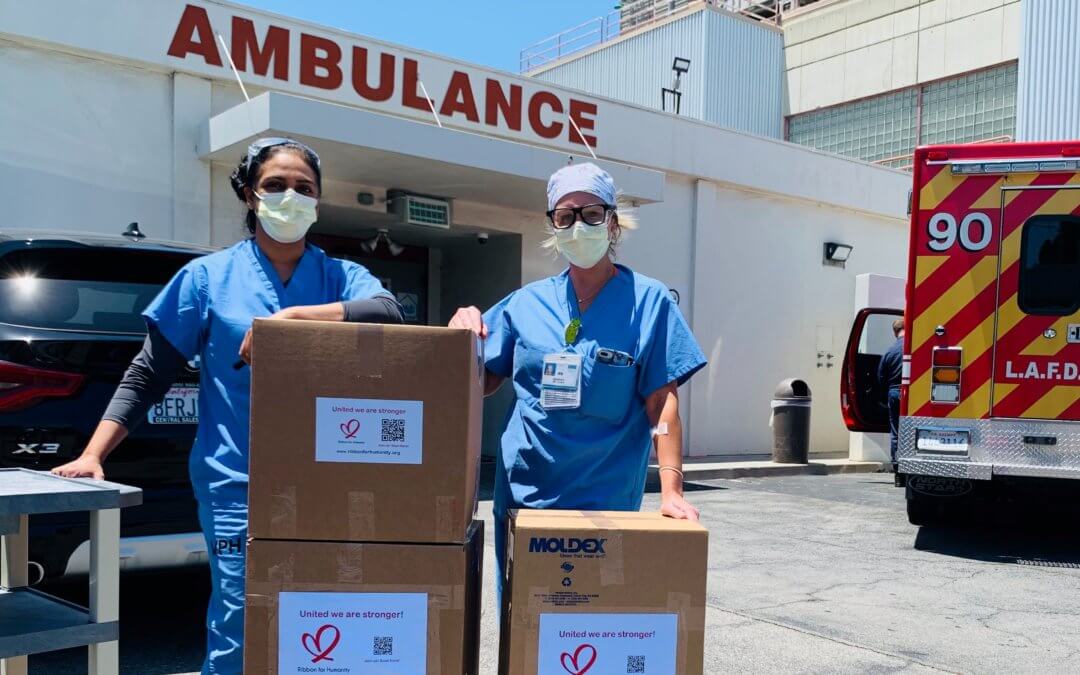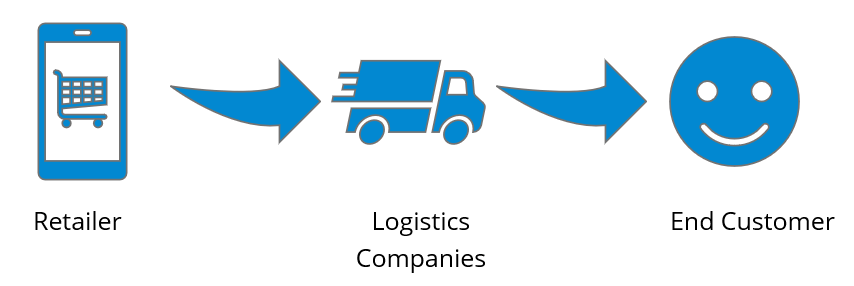Logistics companies play an increasingly important role in ensuring that their customers’ customers (we’ll call them “End Customers”) are satisfied. By expanding their view of logistics customers, logistics companies can secure and grow revenue, scale, and gain vital competitive advantage.
We’ve seen the videos: a delivery person tosses a flat screen over a fence. Or befouls a food order.
Lapses don’t have to be as extreme as these examples.
Normally, End Customers are disappointed when deliveries are late or lost or damaged.
Normally, logistics companies’ customers (for convenience, “Retailers”) would have to deal with a service headache. They may also have to replace the items and/or offer compensation, which adds time and expense.
But these are extraordinary times. And the stakes are higher now.
Now, that lost or damaged delivery can have greater significance to End Customers. For example, a last mile issue could mean that a high-risk End Customer must consider additional risk to have items when they’re needed. Or the stress of steering children safely through a supermarket.
It’s important to note that preference and loyalty don’t carry the same weight when the stakes are high.
Instead of Disappointment, Logistics Issues Can Drive End Customer Attrition.
Retailers then pay a high price: 5-25x to replace those lost End Customers. Depending on the length of the customer acquisition cycle, it could be months or even years before they earn replacement revenue.
And that’s just to regain what was lost unnecessarily.
Then Everybody Loses.
Logistics companies that fail End Customers sour their Retailer customer relationships.
Those logistics companies risk driving their own Retailer customer attrition.
And logistics companies are subject to the same lost revenue and replacement costs.
With high stakes, preference & loyalty don’t carry the same weight.
When logistics companies let down End Customers, everyone loses:
-
At best, End Customers don’t have what they paid for, when they need it.
-
Retailers lose revenue, their costs increase, and their margins shrink.
-
Logistics companies can lose contracts, reputations, margins, revenue.
Serve End Customers and Everybody Wins.
In contrast, there’s considerable upside when logistics companies expand their view to include End Customers. By understanding End Customers and serving their needs too, logistics companies can fuel Retailers’ customer retention.
Attractive customer economics then come into play because current customers respond more, and more often. They spend more on average.
Especially now, serving current customers is every company’s most effective way to manage and grow revenue.
Instead of driving customer attrition, logistics companies can strengthen End Customer relationships and the partnerships with their Retailer customers.
The resulting predictable revenue empowers them to innovate, scale, and expand.
When everybody wins, logistics companies gain durable competitive advantage.
Here’s How to Get to Know the End Customer.
Begin by thinking of End Customers are your customers. You’ll want to understand those End Customers.
In fairness, it’s unlikely that Retailer customers will offer up End Customer data for this effort.
Logistics companies do have easy access to publicly available insights about what matters to End Customers: online reviews.
Start by reading End Customers’ reviews of your Retailer customers. Read their competitors’ reviews too.
Focus on reviews that mention the last mile, whether good or bad. By volume and/or intensity, you’ll begin to understand what End Customers value, and what causes pain, and drives attrition.
For example, End Customers may repeatedly mention timeliness as important. Or progress notifications.
Through this exercise, you’ll understand how to add value to your Retailer relationships.
Get it Right & Logistics Companies Grow.
When logistics companies get it wrong, they can trigger a chain reaction of customer attrition, bloated costs, and lost revenue for their Retailer customers and themselves.
Those logistics companies that get it right, that understand and serve End Customers, will build mutually beneficial relationships with their Retailer customers. They immediately benefit from predictable, stable revenue.
Those strong relationships establish competitive advantage.
That frees logistics companies to confidently focus on their growth: to scale, innovate, and expand.
By expanding customer understanding to include End Customers, and their journeys, everyone in the value chain wins.
About Marina Erulkar
I devise strategies to achieve your company’s objectives, whether that’s:
✔️ Reach a growth objective (like doubling revenue)
✔️ Reverse a revenue dip or drop
✔️ Scale the company
✔️ Increase & speed customer acquisition, growth & renewal
✔️ All of the above
My strategies are effective because they’re specific to your business, your customers, and your circumstances, environment, and resources.
I pinpoint revenue opportunities & revenue leakage across your company. I often uncover new revenue sources in the process.
Then, I develop data-driven strategies that grow your revenue quickly, and as you progress to your larger goals.
For my clients, I quickly turn declining revenue into steady revenue growth.
Purposefully. Confidently. Effectively.
If you need a comprehensive strategy that factors current realities & directs you to grow predictable revenue, contact me.
We’ll schedule a call to see if I can help.
Photo Credit: Alex Mecl


